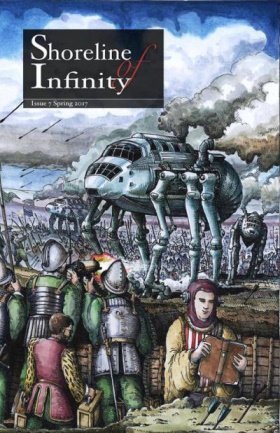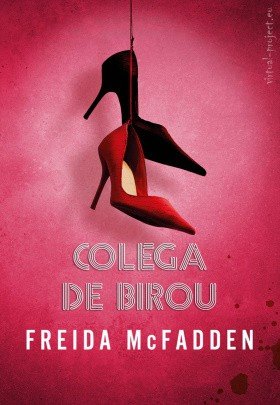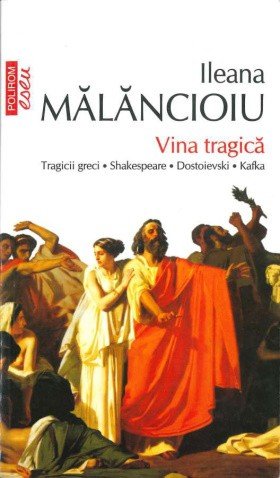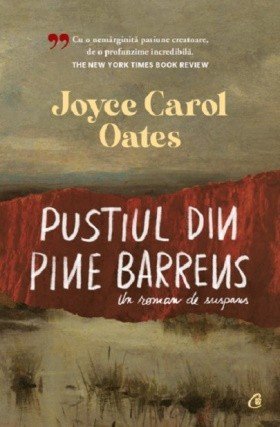That Very Mab
May Kendall and Andrew Lang
Art: Mark Toner

Chapter II—Disillusions
“The time is come,” the walrus said, “To talk of many things.”
— Alice in Wonderland
Queen Mab found England a good deal altered. There were still fairy circles in the grass; but they were attributed, not to fairy dances, but to unscientific farming and the absence of artificial phosphates. The country did not smell of April and May, but of brick-kilns and the manufacture of chemicals. The rivers, which she had left bright and clear, were all black and poisonous. Water for drinking purposes was therefore supplied by convoys from the Apollinaris and other foreign wells, and it was thought that, if a war broke out, the natives of England would die of thirst. This was not the only disenchantment of Queen Mab. She found that in Europe she was an anachronism. She did not know, at first, what the word meant, but the sense of it gradually dawned upon her. Now there is always something uncomfortable about being an anachronism; but still people may become accustomed to it, and even take a kind of a pride in it, if they are only anachronisms on the right side—so far in the van of the bulk of humanity, for instance, that the bulk of humanity considers them not wholly in their right minds. There must surely be a sense of superiority in knowing oneself a century or two in front of one’s fellow-creatures that counterbalances the sense of solitude. Queen Mab had no such consolation. She was an anachronism hundreds of years on the wrong side; in fact, a relic of Paganism.
Of course she was acquainted with the language of all the beasts and birds and insects, and she counted on their befriending her, however much men had changed. Her brief experience of modern sailors and missionaries, whether English or German, had indeed convinced her that men were, even now, far from perfection. But it was a crushing blow to find that all the beasts were traitors, and all the insects. If it had not been for the loyal birds she would have gone back to Polynesia at once; but they flocked faithfully to her standard, led by the Owl, the wisest of all feathered things, who had lived too long, and had too much good feeling to ignore fairies, though he was, perhaps, just a little of a prig.
*
The Owl talked a good deal about the low moral tone of the human race in this respect, and was pessimistic about it, failing to perceive that higher types of organisms always like to signify their superiority over lower ones by shooting them, or otherwise making their lives a burden. The Owl, however, was a very talented bird, and one felt that even his fallacies were a mark of attainments beyond those common to his race. He had read and thought a great deal, and could tell Queen Mab about almost anything she asked him. This was pleasant, and she sat with him on a very high oak in Epping Forest above a pond, and made observations. It was lovely weather, just the weather for sitting on the uppermost branches of a great oak, and she began to feel like herself again. She had forgotten to put her invisible cloak on; but as she was only half a foot high, and dressed in green, no one saw her up there. Having reached the Forest at night, she had met as yet with few British subjects; but the Owl explained that she would see many hundreds of them before the day was over, coming to admire Nature.
“And does nobody believe in fairies?” sighed Queen Mab.
“No, or at least hardly anyone. A few of the children, perhaps, and a very, very few grown-up people—persons who believe in Faith-healing and Esoteric Buddhism, and Thought-
reading, and Arbitration, and Phonetic Spelling, can believe in anything, except what their mothers taught them on their knees. All of these are in just now.”
“What do you mean by ‘in’?”
“In fashion; and what is fashionable is to be believed in. Why, you might be the fashion again,” said the Owl excitedly. “Why not? And then people would believe in you. What a game it all is, to be sure! But the fashions of this kind don’t last,” the bird added; “They get snuffed out by the scientific men.”
“Tell me exactly who the scientific men are,” said the fairy. “I have heard so much about them since I came.”
“They are the men,” sighed the Owl, “Who go about with microscopes, that is, instruments for looking into things as they are not meant to be looked at and seeing them as they were never intended to be seen. They have put everything under their microscopes, except stars and First Causes; but they had to take telescopes to the stars, because they were so far off ; and First Causes they examined by stethoscopes, which each philosopher applied to his own breast. But, as all the breasts are different, they now call First Causes no business of theirs. They make most things their business, though. They have had a good deal of trouble with
the poets, because the poets liked to put themselves and their critics under their own microscopes, and they objected to the microscopes of the scientific men. You know what poets are?”
“Yes, indeed,” said Queen Mab, feeling at home on the subject. “I have forgotten a good many things, I daresay, with living in Polynesia, but not about the poets. I remember
Shakespeare very well, and Herrick is at my court in the Pacific.”
“Ah, he was a great man, Shakespeare, almost too large for a microscope!” said the Owl reflectively. “They have put him under a good many since he died, however, especially German lenses. But we were talking about the philosophers—another name for the scientific men—the men who don’t know everything.”
“I should have thought they did,” said Queen Mab.
“No,” said the Owl. “It is the theologians who know everything, or at least they used to do so. But lately it has become such a mark of mental inferiority to know everything, that they are always casting it in each other’s teeth. It has grown into a war-cry with both parties: ‘You think you know everything’ and it is hard for a bird to find out how it all began and what it is all about. I believe it sprang originally out of the old microscope difficulty. The philosophers wanted to put theology under the microscope, and the theologians excommunicated microscopes, and said theology ought never to be looked at except with the Eye of Faith. Now the philosophers are borrowing an eye of Faith from the theologians, and adding it on to their own microscope like another lens, and they have detected a kind of Absolute, a sort of a Something, the Higher Pantheism. I could never tell you all about it, and I don’t even know whether they have really put theology under the microscope, or only theologians.”
“Well,” said Mab mournfully at last, “I must go back to Samoa; there is too much mystery here for me. But who is that?”
She broke off suddenly, for a new and mysterious object had just entered the glade, and was advancing towards the pool.
“Hush!” said the Owl. “Do take care. It is a scientific man—a philosopher.”
It was a tall, thin personage, with spectacles and a knapsack, and what reminded Queen Mab of a small green landing-net, but was really intended to catch butterflies. He came up to the pond, and she imagined he was going to fish ; but no, he only unfastened his knapsack and took some small phials and a tin box out of it. Then, bending down to the edge of the water, he began to skim its surface cautiously with a ladle and empty the contents into one of his phials. Suddenly a look of delight came into his face, and he uttered a cry—“Stephanoceros!”
Queen Mab thought it was an incantation, and, trembling with fear, she relaxed her hold of the bough and fell. Not into the pond! She had wings, of course, and half petrified with horror though she was, she yet fluttered away from that stagnant water. But alas, in the very effort to escape, she had caught the eye of the Professor; he sprang up—pond, animalcule all forgotten in the chase of this extraordinary butterfly. The fairy’s courage failed her: her presence of mind vanished, and the wild gyrations of the Owl, who, too late, realised the peril of his companion, only increased her confusion. In another moment she was a prisoner under the butterfly-net. Beaming with delight, the philosopher turned her carefully into the tin box, shut the lid and hastened home, too much enraptured with his prize even to pause to secure the valuable Stephanoceros.
But Queen Mab had fainted, as even fairies must do at such a terrible crisis; and perhaps it was as well that she had, for the professor forbore to administer chloroform, under the impression that his lovely captive had completely succumbed. He put her, therefore, straight into a tall glass bottle, and began to survey her carefully, walking round and round. Truly, he had never seen such a remarkable butterfly.
CHAPTER III.
THE ORIGIN OF RELIGION.
“Rough draughts of Man’s Beginning God!”
—Swinburne
When Queen Mab recovered consciousness she heard the sound of violent voices in the room before she opened her eyes which she did half hoping to find herself the victim of some terrible delusion. But the sight of the professor, standing not a yard away, brought a fatal conviction to her heart. It was too true. Was there ever a more undesirable position for a fairy, accustomed to perfect freedom, and nourished by honey and nectar, than to be closely confined in a tall bottle, with smooth hard slippery walls that she could not pierce, and nothing to live upon but a glass-stopper! It was absurd; but it was also terrible. How fervently she wished, now, that the missionaries had never come to Polynesia.
But the professor was not alone, two of his acquaintances were there—a divine veering towards the modern school, and a poet—the ordinary poet of satire and Mr. Besant’s novels, with an eye-glass, who held that the whole duty of poets at least was to transfer the meanderings of the inner life, or as much of them as were in any degree capable of transmission, to immortal foolscap. Unfortunately, as he observed with a mixture of pride and regret, the workings of his soul were generally so ethereal as to baffle expression and comprehension; and, he was wont to say, mixing up metaphors at a great rate, that he could only stand, like the High Priest of the Delphic oracle, before the gates of his inner life, to note down such fragmentary utterances as ‘foamed up from the depths of that divine chaos’ for the benefit of inquiring minds with a preference for the oracular. He added that cosmos was a condition of grovelling minds, and that while the thoughts, faculties, and emotions of an ordinary member of society might fitly be summed up in the epithet ‘microcosm’, his own nature could be appropriately described only by that of ‘microchaos’. In which opinionthe professor always fully coincided. With the two had entered the professor’s little boy, a motherless child of eight, who walked straight up to the bottle.
No sooner did the child’s eyes light on the vessel than a curious thing occurred. He fell down on his knees, bowed his head, and held up his hands.
“Great Heavens!” cried the professor, forgetting himself, “What do I behold! My child is praying (a thing he never was taught to do), and praying to a green butterfly! Hush! Hush!” the professor went on, turning to his friends. “This is terrible, but most important. The child has never been allowed to hear anything about the supernatural—his poor mother died when he was in the cradle—and I have scrupulously shielded him from all dangerous conversation. There is not a prayer-book in the house, the maids are picked Agnostics, from advanced families, and I am quite certain that my boy has never even heard of the existence of a bogie.”
The poet whistled: the divine took up his hat, and, with a pained look, was leaving the room.
“Stop, stop!” cried the professor, “He is doing something odd.”

























